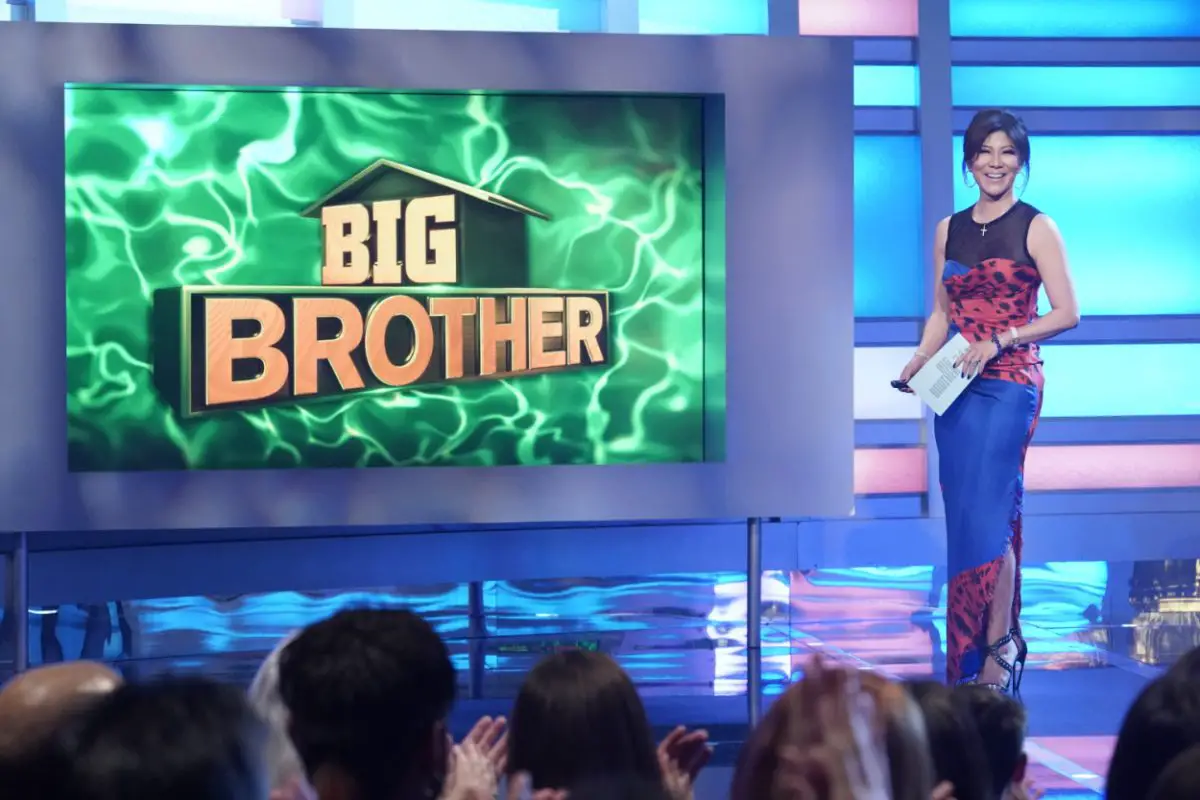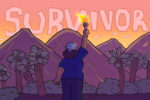On Aug. 5, CBS premiered the 22nd season of its hit summer reality show, “Big Brother,” in which a group of 16 people are locked inside a house and cut off from the outside world in a grueling three-month social battle for a grand prize of $500,000. The houseguests participate in competitions, form alliances and make strategic moves to get them to the end, where the final two competitors face a jury of eliminated houseguests who vote for the winner.
Amid the ongoing COVID-19 pandemic, however, it was doubtful whether the show would return to our screens at all this year. Luckily, CBS was allowed to go forward with production, and it eventually announced that this year’s season would be an “All-Star,” edition, the first in 14 years.
Longtime fans of the show were thrilled at the prospect of returning contestants competing once more for the title. After lots of speculation, the final cast was announced. While fans were disappointed in some of the competitor choices, the hype was still strong at seeing the return of fan favorites like Janelle Pierzina, Dani Donato-Briones and Tyler Crispen.
The newest season just wrapped up, with former runner-up Cody Calafiore taking home the grand prize in a 9-0 vote over Enzo Palumbo. While Cody played a dominant game, it was, unfortunately, a frustrating season for longtime viewers.
With the announcement that “Big Brother” would be returning for a 23rd season, the fanbase collectively agreed that CBS needs to make some major shake-ups to the game’s formula to make it more entertaining. After all, the show’s motto is “expect the unexpected.” However, for the past few seasons, it’s been pretty easy to know what to expect.
The show has introduced many twists over the years to make the game more exciting, such as double evictions, three nominees per week and lots of secret powers given to players. While these adjustments are nice in theory, they usually don’t do much to change the game.
Season 22 of “Big Brother” demonstrated this failure the most. The alliance known as “The Committee” dominated every single week, winning every HOH competition and facing no threats from the underdog contestants. In fact, we’ve seen a similar story play out the past six seasons, leading new houseguests to simply replicate the same strategy every year to succeed in the game.
The repetition, paired with many criticisms over the show’s casting decisions, led many to believe that the series needs a revamp. Here are some ideas that could improve the show and turn it back into the great socially strategic game we all know and love.
1. Shorten the Seasons
Currently, every season of “Big Brother” runs for nearly 100 days and is comprised of about 40 episodes. This makes for remarkably slow gameplay; the contestants are much more hesitant to make flashier moves when they have a grueling three-month marathon ahead of them. By shortening the seasons to around 70-80 days, the show could both encourage better gameplay and be the perfect length for a season.
2. Better Casting
One of the show’s biggest criticisms over the past few years is the abysmal casting. Most modern seasons of “Big Brother” feature the same clout-chasing Instagram influencers who are only there to look pretty for the cameras. Viewers could witness better gameplay if a wider range of competitors is cast, such as fans of the game.
Furthermore, the ways in which minority houseguests have been treated has been a controversial topic of discussion, and CBS has now announced a new diversity quota. “Big Brother” and other series, such as “Survivor,” will now feature casts with 50% diversity.
While that is a step in the right direction, it’s also important to diversify the backgrounds of all the contestants as well. Season 10, for example, is largely considered by many to be the best season of “Big Brother,” and it displayed diversity in both departments.
3. New Competitions
Right now, the challenges in the show range from mental to physical to endurance competitions. Recent seasons have heavily favored physical types of tests, giving contestants with different skill sets a harder time acquiring power in the game.
Furthermore, we see the same types of competitions every year, meaning players often practice in advance because they know certain challenges are likely to come up during the season. By introducing new competitions that acknowledge a wider variety of abilities, the playing field will be evened out.
4. Hide the Vote Count
In every eviction episode, host Julie Chen Moonves informs the houseguests of the final vote count. For example, she announces, “By a vote of 7-2, Jake, you are evicted.” This often encourages a hive mentality, where players are too scared to vote how they truly want in order to avoid angering the contestants in power. By simply not telling the contestants what the final vote count is, perhaps it would encourage more blindsides in the game.
5. Change Up the Formula
A normal “Big Brother” week consists of the HOH competition, the nomination ceremony, the POV competition, the POV ceremony and finally, the actual eviction. Adding in new twists to permanently change the formula could be beneficial; players would always be kept on their toes and “expect the unexpected.”
I don’t mean adding lame twists like secret powers, but perhaps trying two vetoes per week, adding a separate game similar to the “Safety Suite” challenge introduced this season or trying the “Temptation Competition” from Season 19, which could force players to use their social bonds to get further in the game.
“Big Brother” is 22 seasons strong, but it’s clear the show needs a major makeover as it enters a new era of television watching. Hopefully, CBS can implement some of these adjustments to elevate the series back to the socially strategic game it’s meant to be.

















